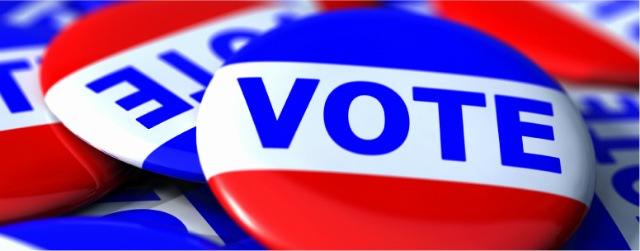State’s Early Deadline For Independents OK, Judge Rules
by August 26, 2015 9:05 am 154 views

An Arkansas law moving up the deadline for independent candidates to present their petition signatures is constitutional because the state has a compelling interest in the earlier date, a federal district judge ruled Tuesday.
U.S. District Judge James Moody ruled that the law is needed to give the state time to process signatures, respond to litigation, and comply with federal law. He granted a summary judgment to the defendant, Mark Martin, Arkansas’ secretary of state. The case is Mark Moore, Michael Harrod, and William Chris Johnson v. Mark Martin.
The lead plaintiff, Moore, said Wednesday that he has not decided if he will appeal the ruling.
The case involves a law passed in 2013 that requires independent candidates to present their qualifying signatures – 3% of qualified voters, but no more than 10,000 in a statewide race – at the end of the filing period at the beginning of March in a typical year. Previously, independent candidates could present their signatures in May, when major parties were holding their primaries. The Legislature this year moved Arkansas’ 2016 primary elections to March, thereby moving this year’s filing deadline to November 9. The 90-day period independent candidates have to gather signatures began Aug. 11.
The plaintiffs argued that the law adds an unfair burden to independent candidacies by requiring them to quality for the ballot months before the major parties qualify their own candidates. They said the law requires independent candidates to collect signatures in the winter months, when days are shorter and the weather colder.
Moody agreed that the earlier deadline is “a burden of some substance” for independent candidates and the voters who want to vote for them, but he ruled those concerns are outweighed by the state’s interest in administering elections.
Moody accepted the arguments presented by Martin’s attorney, A.J. Kelly. Kelly argued in legal briefs and in court July 27 that the earlier deadline was needed for several reasons. The Military and Overseas Voter Empowerment Act, passed by Congress in 2009, requires absentee ballots to be transmitted to military and overseas voters at least 45 days before a federal election. Also, more non-independent candidates, mostly judges, are filing petitions. Furthermore, time is needed to process signatures for what Moody wrote was an increased number of voter initiatives, as well as “ever increasing litigation over petitions.”
Moody rejected the plaintiffs’ arguments that previous courts had ruled against an earlier deadline for non-major party candidates. A 1975 case, Lendall v Bryant, required an early March deadline but also required signatures from 15% of qualified voters. A later case, Lendall v. Jernigan, involved an early March deadline but required signatures of 10% of qualified voters and a circulation time of 60 days. A 1978 case, Rock v. Bryant, required 3% of voters, a circulation time of 60 days, and a filing deadline falling on the Monday preceding the primary.
“While it would be easy to say precedent clearly dictates that the current statutory scheme is unconstitutional because the court in Lendall II stated that it doubted any filing deadline before April could be constitutional, it would not be accurate,” Moody wrote. “The Court must weigh the variables of the legislative scheme with the burdens and administrative issues of today in order to determine the constitutionality of these statutes.”
Neither Moore, who said he wanted to run for lieutenant governor, nor Harrod, who said he wanted to run for the state House of Representatives, actually filed a signature petition in 2014, the election in question. Still, Moody ruled that they had standing to sue.
Moore said Tuesday that the ruling means that independent candidates cannot do what major party candidates do – decide to enter the race as late as the filing week. He wrote that the small number of independent candidacies would not overly burden the state. Citizen initiatives have until July 8, 2016, to submit their signatures, and each requires far more signatures than the combined requirements for the small number of independent candidates.
“The precedents we cited, prior courts ruled that the citizens’ right to get equal access to the ballot was more important than making the public officials’ job easier,” he said. “This ruling reverses that and puts the convenience of the public officials above the equal ballot access rights of citizens. I think people want more choices.”
